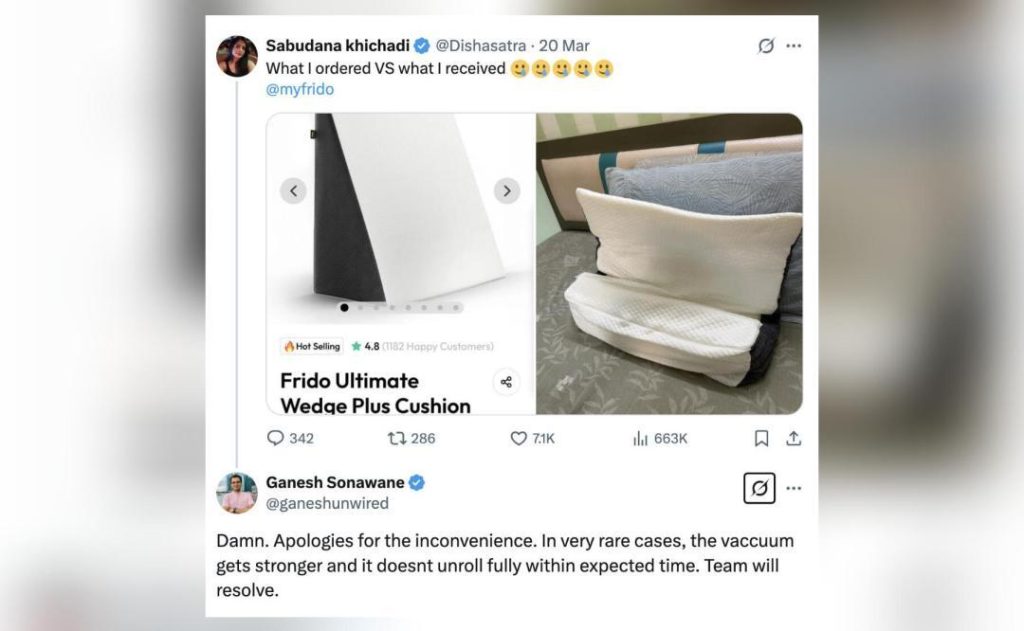
Customer Complains about Flat Cushion, Frido CEO Says, “Damn”
In today’s digital age, customer satisfaction is crucial for any business to thrive. With the rise of e-commerce, customers have more options than ever before to choose from, and if a product fails to meet their expectations, they can easily switch to a competitor. In this scenario, a company’s response to customer complaints can be the difference between a loyal customer and a lost sale.
Recently, a viral post on X highlighted the importance of effective customer service. A customer took to the platform to complain about a flat cushion she received from Frido, a popular home goods brand. The customer shared pictures of the cushion on the company’s site and hers, comparing the product she ordered with what she received.
The customer’s post started with a simple yet powerful statement, “What I ordered vs what I received.” The pictures clearly showed the difference between the expected and actual product, with the customer’s cushion looking flat and deflated. The customer’s frustration was palpable, and it’s no wonder that her post went viral.
However, the real story unfolded when Frido’s CEO, Ganesh Sonawane, responded to the customer’s complaint. Instead of apologizing or offering a solution, Sonawane’s response was curt and unexpected – “Damn.” Yes, you read that right! The CEO of a company, known for its high-quality products, responded to a customer complaint with a single word.
But why did Sonawane respond in this manner? In an attempt to explain the reason behind the flat cushion, he added, “In very rare cases, the vacuum gets stronger and it doesn’t unroll fully within the expected time.” While his response may have been intended to provide a technical explanation, it fell flat (pun intended) with the customer and many others who read the exchange.
Sonawane’s response raises several questions. Was the customer’s complaint unfairly dismissed? Should the CEO have taken the time to understand the issue and offer a solution, rather than simply reacting with frustration? Why did the CEO feel the need to respond in such a manner, instead of taking the high road and apologizing for the inconvenience?
The incident highlights the importance of effective communication in customer service. As a company, Frido has built a reputation for producing high-quality products, but its CEO’s response to the customer’s complaint has damaged its reputation. Instead of resolving the issue, Frido’s response has created more problems, including a negative public image and potentially lost customers.
In an era where customer satisfaction is key, companies must prioritize effective communication. A simple apology or offer to replace the product can go a long way in resolving the issue and maintaining customer loyalty. Sonawane’s response, on the other hand, has only added fuel to the fire, making the situation worse.
The incident also raises questions about the company’s quality control measures. If a product is defective, it’s the company’s responsibility to ensure that it doesn’t reach the customer. Frido’s response suggests that the company may not have adequate quality control measures in place, which can lead to more complaints and lost customers.
In conclusion, Frido’s CEO’s response to the customer’s complaint was unacceptable. Instead of apologizing and offering a solution, Sonawane responded with frustration, which only added to the customer’s disappointment. The incident highlights the importance of effective communication in customer service and the need for companies to prioritize customer satisfaction.






